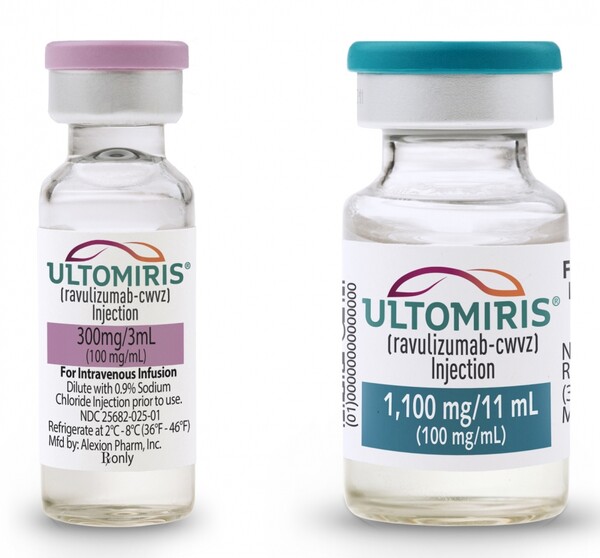AstraZeneca Korea said that the Ministry of Food and Drug Safety (MFDS) approved Ultomiris (ingredient: ravulizumab) as an adjunct therapy for adults with antibody-positive acetylcholine receptor (AChR) generalized myasthenia gravis (gMG) on Thursday.

Ultomiris had been approved for the treatment of paroxysmal nocturnal hemoglobinuria (PNH) and atypical hemolytic uremic syndrome (aHUS) in Korea.
Generalized myasthenia gravis (gMG) primarily occurs due to a failure in the transmission of nerve impulses to muscles at the neuromuscular junction, caused by the activation of the complement system in the binding process of acetylcholine and its receptor.
Common symptoms include fatigue, double vision, drooping eyelids, and difficulty in basic movements like climbing stairs or rising from a chair, significantly impacting daily life. The primary goal of treatment is to minimize symptom expression, as inadequate management can be life-threatening.
Standard treatments for gMG, such as anti-AChR, steroids, and immunosuppressants, have limitations like insufficient therapeutic effects and risks of side effects during long-term treatment.
As a result, patients have been anticipating an option with enhanced efficacy and reduced side effects compared to standard treatments.
The MFDS decided to expand the indication for Ultomiris based on the CHAMPION-MG phase 3 clinical trial, which involved 175 adult patients with antibody-positive AChR gMG over a 26-week period.
The trial assessed the efficacy and safety of the treatment, and the primary endpoint was the improvement in the Myasthenia Gravis-Activities of Daily Living (MG-ADL) score.
Ultomiris showed a significant reduction of 3.1 points in the MG-ADL score at 26 weeks of treatment compared to a 1.4-point reduction in the placebo group, meeting the primary endpoint.
Notably, more than half of the patients in the Ultomiris group showed a minimum of a 3-point improvement in MG-ADL scores, compared to 34.1 percent in the placebo group.
Secondary endpoints included the Quantitative Myasthenia Gravis (QMG) score, which also showed significant improvement with Ultomiris treatment.
The safety profile of Ultomiris was similar to that of the placebo group, with no adverse reactions leading to treatment discontinuation observed in the clinical study.
“We are very pleased to be able to offer an effective treatment option to gMG patients, who have been struggling with limited treatment options for a disease that can be both life-threatening and debilitating,” AstraZeneca’s Rare Disease Business Unit Director Kim Chul-woong said. “AstraZeneca Korea will continue its efforts to improve the treatment landscape for rare diseases, including increasing treatment options and improving access."
Related articles
- AstraZeneca’s neurofibromatosis drug Koselugo gets insurance coverage
- AZ’s severe asthma drug Tezspire scores nod in Korea
- Tagrisso, Leclaza get reimbursement for 1st-line NSCLC treatment
- AstraZeneca to pull anti-diabetes blockbuster Forxiga from Korea amid floods of generics
- AstraZeneca, HK inno.N team up to boost sales of diabetes drugs

